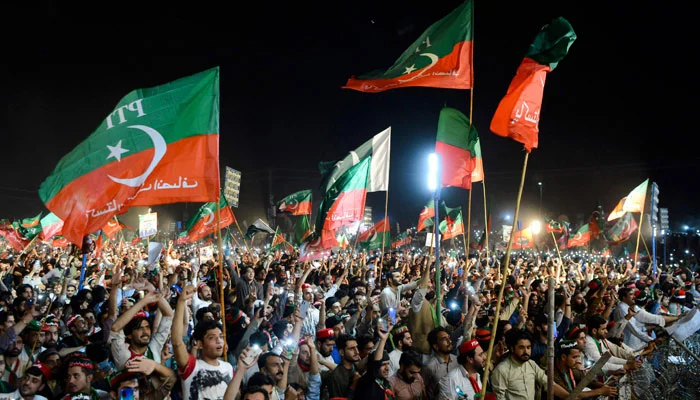The Pakistan Tehreek-e-Insaf (PTI), one of Pakistan’s main political parties, has the most female candidates running in the next elections.
Out of the 754 candidates the PTI has nominated nationwide, 53 women have been given party tickets for the national and provincial seats by the former prime minister Imran Khan’s political party.
As a result, 7% of the politicians fighting with PTI’s backing are female.
The Pakistan Supreme Court removed the PTI’s well-known election symbol—the cricket bat—earlier this month. Following that, the party’s nominees will run as independents in the legislative election using various electoral emblems.
With the support of the PTI, out of the 53 women running, 28 are vying for seats in the National Assembly and 25 for provincial offices.
Seven women, or 7.2% of the candidates nominated by the recently established Istehkam-e-Pakistan Party, and thirteen women, or 6.7% of the candidates nominated by the Muttahida Qaumi Movement Pakistan, received tickets.
Yet not even 5% of the candidates from other major political parties have received tickets.
The Pakistan Peoples Party (PPP) has given party tickets to 35 women for the election on Thursday; these women represent 11 National Assembly seats and 24 provincial seats, making about 4.5% of the party’s total of 779 candidates.
Party passes have been distributed by the Pakistan Muslim League-Nawaz, which is led by former prime minister Nawaz Sharif.
15 provincial seats and 13 seats in the National Assembly. As a result, women make up just 4.2% of the 668 candidates the party has put forth.
The far-right Tehreek-e-Labbaik Pakistan, which comprises only 1.5% of its total candidates, has given tickets to the fewest number of women—eleven.
Nonetheless, out of the 11,165 independent candidates running for province and National Assembly seats nationwide, a sizable number of women (513) are doing so.
203 of these women, or the majority, are running for seats in the Punjab Assembly.
Despite the fact that women make up approximately 49% of Pakistan’s population, just 839 out of the more than 17,000 candidates running in the election on February 8 are female.
Political parties are required by Pakistan’s electoral laws to provide 5% of their tickets to women running for contestable seats.
The Pakistani Election Commission clarified that the law was misinterpreted, however.
A senior official told Geo.tv that the 5% criterion was established after accounting for women who were fielded by political parties for local and parliamentary elections, among other levels of government.
Nighat Siddique, the extra director general gender at the ECP, stated, “The [5%] is calculated on the basis of total tickets [allotted] by a political party to women for National and provincial assemblies, local government, and senate.”







